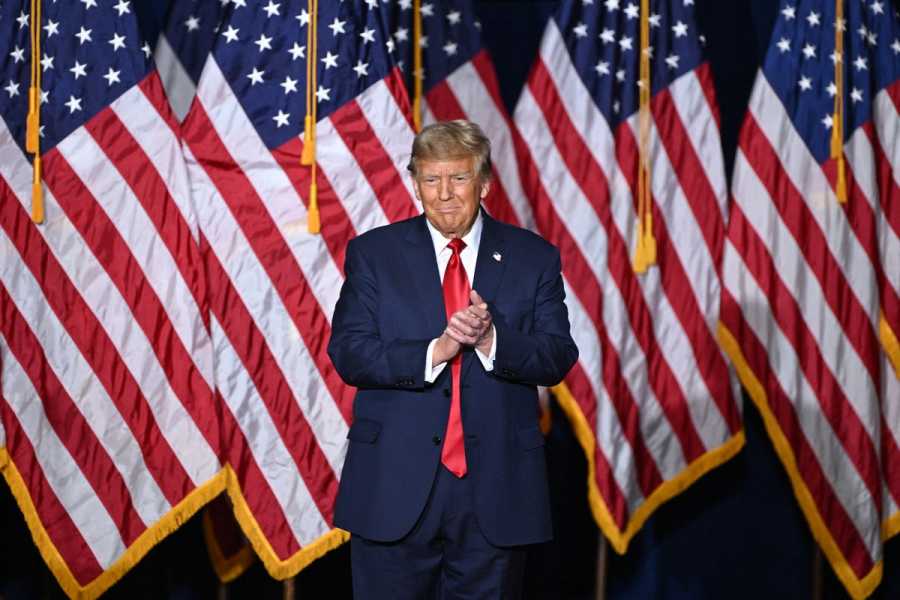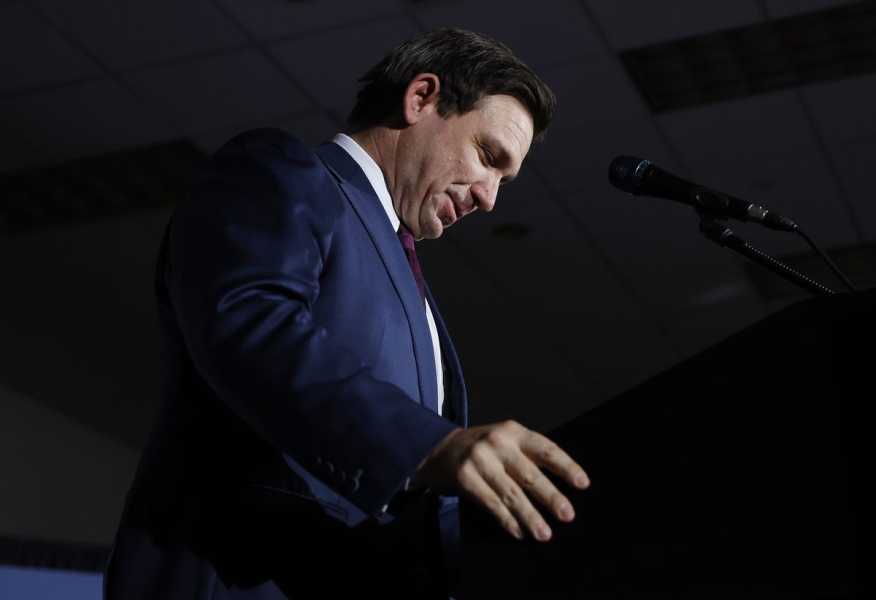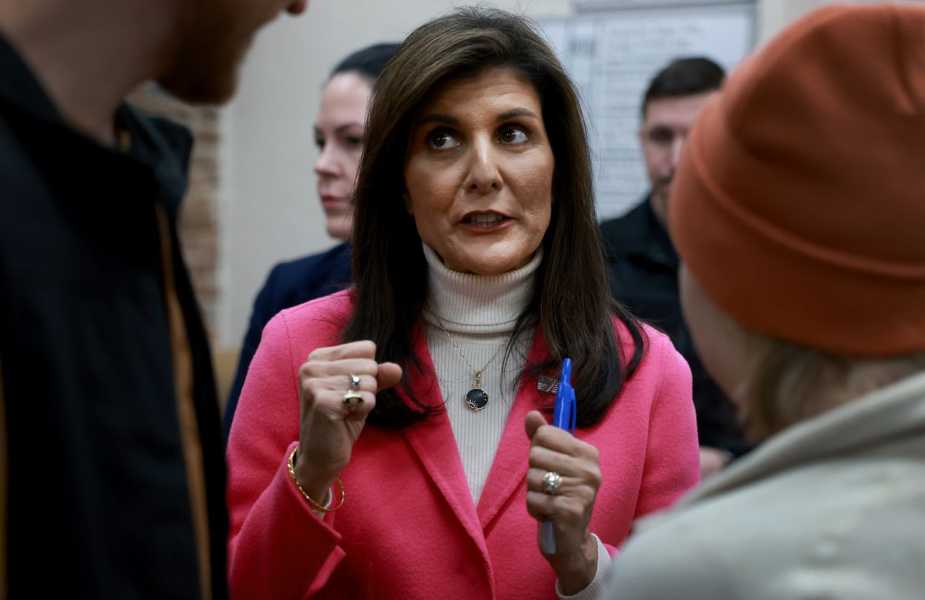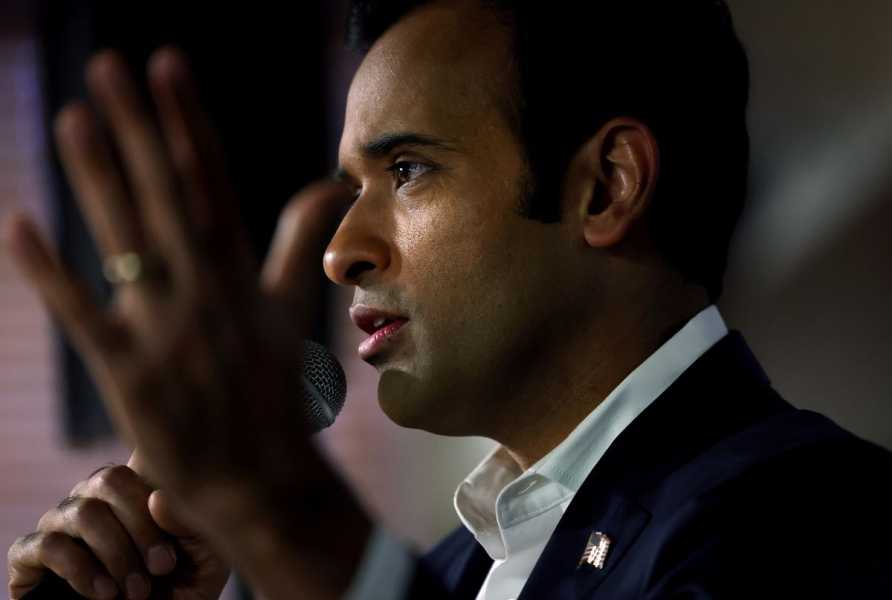None of the GOP candidates got what they wanted — except for Donald Trump.

Former president and Republican presidential hopeful Donald Trump attends a watch party during the 2024 Iowa Republican presidential caucuses in Des Moines, Iowa, on January 15, 2024. Jim Watson/AFP via Getty Images Andrew Prokop is a senior politics correspondent at Vox, covering the White House, elections, and political scandals and investigations. He’s worked at Vox since the site’s launch in 2014, and before that, he worked as a research assistant at the New Yorker’s Washington, DC, bureau.
None of the GOP presidential candidates got what they wanted out of the Iowa caucuses — except for Donald Trump.
Before the caucuses, I wrote about what each candidate needed to do in Iowa to win the state’s all-important “expectations game” — the strange way this small contest can reshape the perceptions of the political world about who can win.
Ron DeSantis needed to do really well to show his campaign still had a pulse, but he ended up with a weak, distant second place.
Nikki Haley wanted a solid second-place showing but ended up in third place, with some limitations in her support base — her failure to appeal to non-college-educated Republicans — very apparent.
Vivek Ramaswamy wanted to show his campaign was for real, but he didn’t, and soon announced he was quitting the race and endorsing Trump.
As for Trump? Well, he needed a commanding win about on track with where he was polling — 50 percent — and that’s what he got.
Loser: Ron DeSantis

Republican presidential candidate Florida Gov. Ron DeSantis speaks at his caucus night event on January 15, 2024, in West Des Moines, Iowa. Anna Moneymaker/Getty Images
DeSantis had a theory that he could defeat Trump with, effectively, a pincer movement. He’d peel off some voters from the right, assuring them that he’s a more solid and effective conservative than Trump. But he’d also peel off more mainstream voters with concerns over Trump’s electability, arguing his Florida record means he can and would actually win in November.
For many months, these hopes have lain in tatters, with DeSantis having declined in the polls, lost donors, and seen Haley try to supplant him as the second-place candidate.
But Iowa remained his best chance to turn this around. DeSantis made campaign visits to all 99 of the state’s counties, and won some key endorsements from elites there, like evangelical leader Bob Vander Plaats and Gov. Kim Reynolds (R).
That proved to be enough — for a weak second place. As of Monday night, though counting wasn’t yet finalized, DeSantis had won about 21 percent of the vote, to 19 percent for Haley. Trump was far ahead of both, with 51 percent.
A DeSantis campaign official told CNN he’d “earned his ticket out of Iowa” and would fight on. But the territory ahead looks forbidding — he’s polling in the single digits in New Hampshire, and well behind Haley (and of course Trump) in South Carolina. The question of whether he stays in the race likely hinges on whether his last remaining donors abandon him. But he didn’t get the stunning success he needed to show he still has a shot.
Loser: Nikki Haley

Republican presidential candidate former UN Ambassador Nikki Haley interacts with people during a campaign stop at the Bread Board on January 15, 2024, in Pella, Iowa. Joe Raedle/Getty Images
The stakes for Haley in Iowa were not as high as they were for DeSantis. She clearly has a significantly better shot to break through in New Hampshire, and even publicly downplayed the caucuses earlier this month, saying the Granite State would “correct” their result.
Still, she clearly would have preferred to have done a bit better than she ended up doing. A solid second-place finish in a weak state for her would have been taken by many as a “win,” exceeding expectations and earning her media buzz in the eight days leading up to New Hampshire’s primary. Instead, she’ll end up in third place with around 19 percent of the vote.
The silver lining for Haley is that a mediocre Iowa performance does not, historically, doom a candidate in New Hampshire, where voters often seem to enjoy thumbing their noses at the caucus results.
Yet there was also an ominous sign for her in the results — as the New York Times’s Nate Cohn pointed out, they showed “an extraordinary educational divide,” with Haley doing well in highly educated areas “but failing to obtain 10 percent in many less educated precincts.” If non-college-educated Republicans overwhelmingly reject Haley, then she can’t win the GOP nomination — it’s that simple.
Loser: Vivek Ramaswamy

Republican presidential candidate Vivek Ramaswamy speaks at a campaign event at the Machine Shed restaurant on January 15, 2024, in Urbandale, Iowa. Kevin Dietsch/Getty Images
The former biotech CEO’s wild ride of a campaign — going from nowhere in the polls to the high single digits — came to an end Monday night, after Ramaswamy finished in the high single digits in Iowa.
Ramaswamy got a brief burst of attention from the media in mid-2023, but after a certain point, the more voters saw of him, the less they liked him. He hit double digits in several national polls last summer but never managed to do so again once fall began, according to RealClearPolitics. His persona grew more obnoxious as he increasingly pushed far right conspiracy theories.
As with DeSantis, Iowa was Ramaswamy’s best hope for a turnaround. He didn’t just visit all of Iowa’s 99 counties — he visited them all twice. But as of late Monday night, ongoing tallies had him at about 8 percent of the vote. Having had enough, he quit the race. But we’ll surely hear more of him again.
Winner: Donald Trump
For months, Trump has led every national poll of the GOP primary, and every poll of every key state. But the Iowa caucuses were our first chance to see whether voters would defy the polls. Perhaps, at the last minute, they’d have second thoughts about supporting the guy who tried to steal the last presidential election and who has been indicted in four jurisdictions.
They didn’t. The final RealClearPolitics polling average had Trump at 52.5 percent of the vote. As of Monday night, he was around 51 percent. That number could still move a bit as more votes are counted, but it won’t shift that much — the polls appear to have been basically right.
That’s good news for Trump going forward: There wasn’t any sort of massive, unnoticed sea change in the GOP electorate in which voters abandoned him. They are still with him. And we have every reason to believe they’ll be with him in the next primary and caucus contests, too.
Trump hasn’t locked down the race yet, of course; Iowa is just one state. Haley will get to take her shot in New Hampshire. But the central political fact of the past eight and a half years has been the unshakable loyalty to Trump demonstrated by much of the GOP base. It would take a seismic event to dislodge him as the GOP frontrunner.
Sourse: vox.com